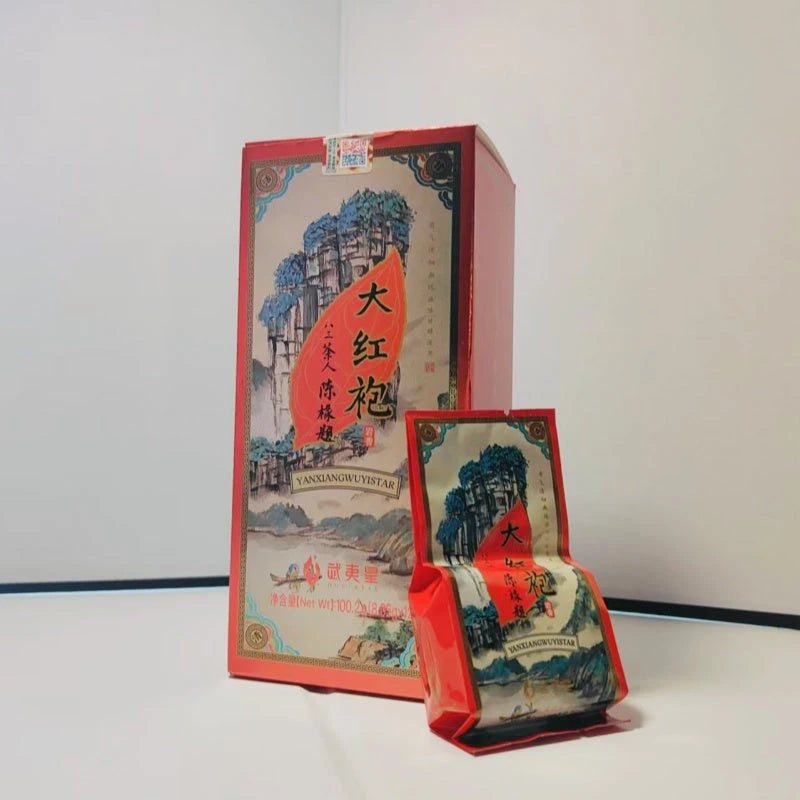Jiulongke — The Birthplace of Da Hong Pao Mother Trees
Jiulongke, a legendary tea-growing area in Wuyishan, is celebrated as the origin of the Da Hong Pao mother trees. This extraordinary land has nurtured six rare mother trees, embodying the essence of Wuyishan’s rich tea culture and history. These iconic trees are treasured not only for their rarity but also for their profound cultural significance.
🌿 The Origins and Legacy of the Da Hong Pao Mother Trees
Tucked away on the steep cliffs of Jiulongke, the six Da Hong Pao mother trees have stood strong for over 360 years. Their age, uniqueness, and connection to China's tea heritage have earned them a place on the “Wuyishan World Natural and Cultural Heritage List” recognized by the United Nations.
These trees have become global symbols of tea excellence, representing the highest quality Wuyi Rock Tea (Yancha) available. Their influence extends far beyond tea enthusiasts, resonating with collectors, cultural heritage advocates, and historians alike.
💎 The Rarity and Market Value of Da Hong Pao Mother Tree Tea
Tea from the Da Hong Pao mother trees is considered the most prestigious and valuable tea in the world. The following milestones illustrate its legendary status:
-
1998: 20 grams of Da Hong Pao mother tree tea sold at auction for 156,800 RMB (approx. USD 21,000).
-
2005: Another 20-gram batch was auctioned for a record 208,000 RMB (approx. USD 26,000).
These staggering prices highlight the scarcity, uniqueness, and symbolic value of mother tree Da Hong Pao.
🛡️ Protecting the Mother Trees: From Harvest to Heritage
To protect these irreplaceable trees, the Wuyishan Municipal Government announced in 2006 the “harvest suspension and conservation” of Da Hong Pao mother trees. This marked the end of any future commercial harvesting from the six original trees.
The final batch of tea from the mother trees was crafted by WuYi Star and presented to the National Museum of China as a priceless cultural artifact. This gesture symbolizes the end of commercial production and reinforces the role of Da Hong Pao as a symbol of China's natural and cultural heritage.
Additionally, in 2003, the local government took out a 100 million RMB (approx. USD 12 million) insurance policy on the mother trees, highlighting their extraordinary value and the importance of their preservation.



